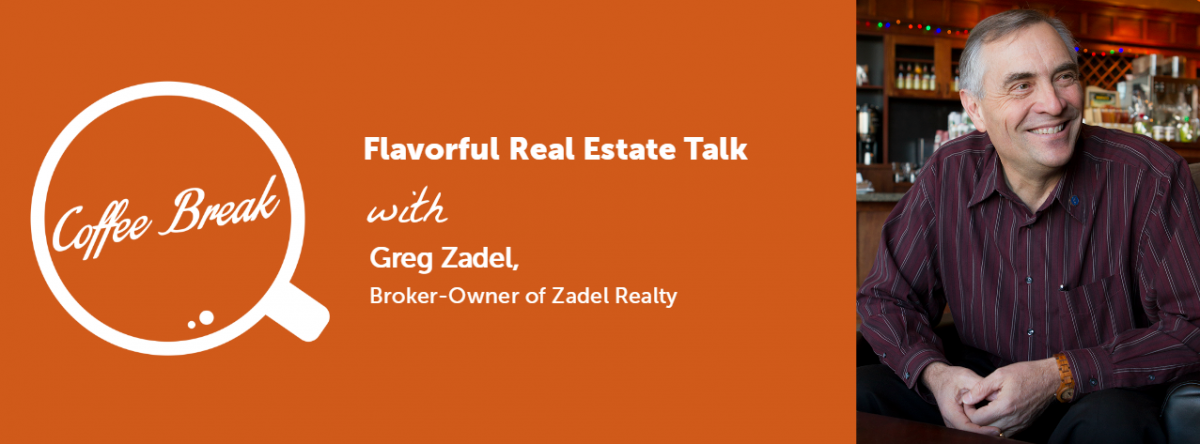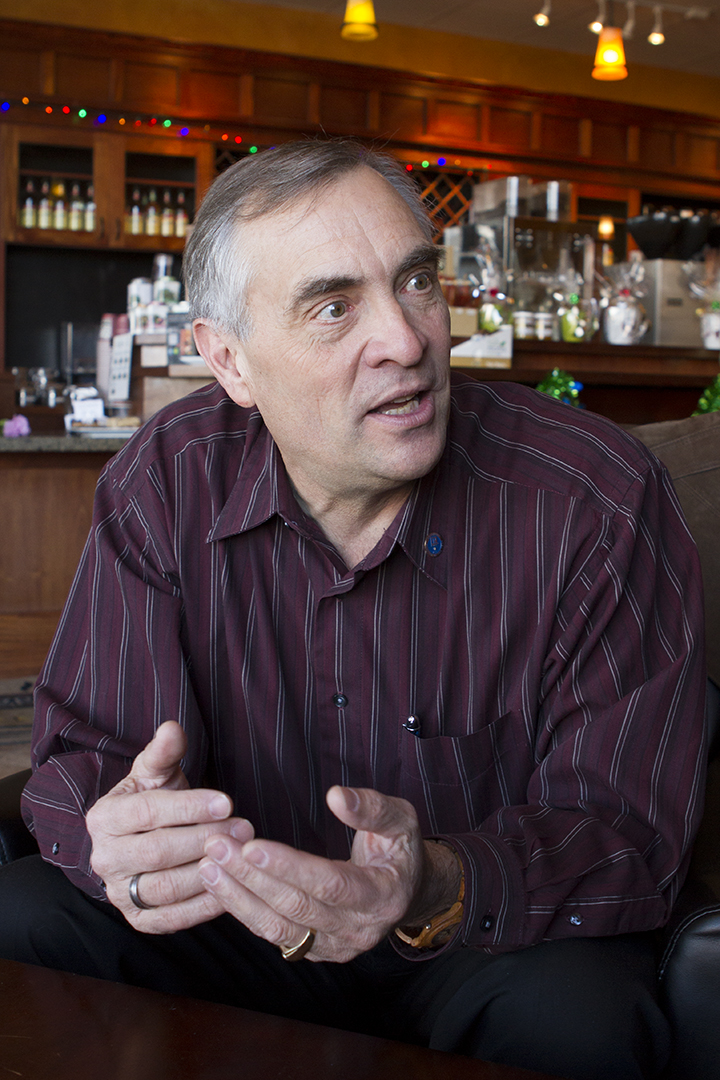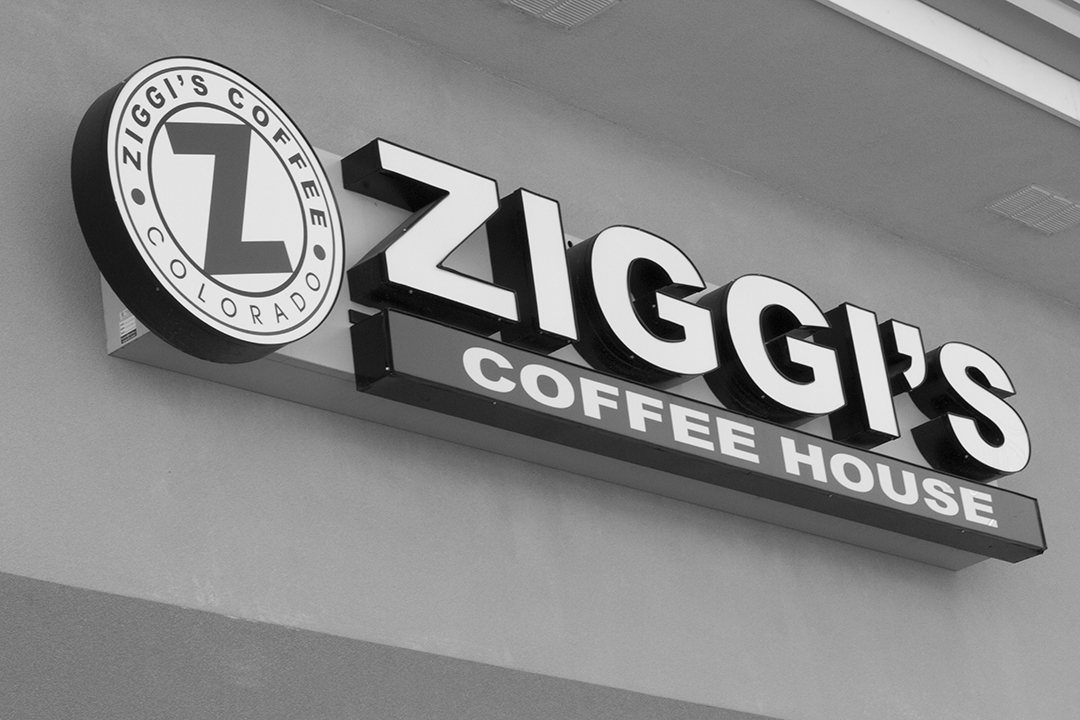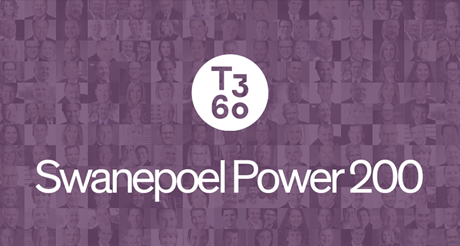Coffee Break with Greg Zadel

How does Greg Zadel, Broker-Owner at Zadel Realty, manage to squeeze in two hours at the gym every single morning before getting into the office by 8am? We had to find out! In addition to being an avid runner and cyclist, Greg is passionate about his staff, makes time to volunteer at both local and national level, and brings to the table knowledge one can only accumulates from 35 years of experience.
Greg has an impressive resume. He currently serves as a director for both the Colorado Association of REALTORS® (CAR) and the National Association of REALTORS® (NAR). In the past he served as Chair of the NAR MLS Policy Committee and the Emerging Issues and Trends Advisory Board. Greg was awarded the DMAR Excellence Award for sales production in 2011, 2012 and 2013; Broker Manager of the Year in 2015; and CAR's prestigious REALTOR® of the Year award in 2011. Additionally, he is the author of the Your Director Hat - a Guide to Being a Director on a Board.
We recently sat down with Greg at Ziggi's Coffee Westminster - a locally owned and operated coffee shop and nice middle meeting ground between DMAR HQ and Firestone where Greg currently resides and works - to learn more about his business and personal life including why he chose to give up his trademark 'stache.
DMAR: To get started, can you tell us a bit about yourself and how you got into the real estate industry?
Greg: I started in the business school at the University of Denver and took a real estate class in my freshman year. I liked it, and took all the other classes in my sophomore year. By the middle of my junior year I had completed all the real estate classes for my major. At that time a college degree gave you the ability to go directly to a broker license if you passed the broker license test. So I took the test, passed it, and was able to open up my office even though I hadn’t worked for anyone in real estate before and I didn’t have much of a background in it. I decided to open up an office in Firestone, Colorado and had an office in Fort Lupton later. But that was 1980 when I started the office and at that point in time the market was shifting in a negative way. I was selling a couple new construction, but that kind of went away, and I just started selling homes. I’ve been doing it ever since. I’ll be coming up on 36 years next spring.
D: What are your hobbies outside of work?
G: Avid runner… I run down to the rec center five days a week - to play racquetball three days a week, go to boot camp classes the other two - and then run home. I get there every morning at 5am when they open. I enjoy just going for runs, especially when I’m in other cities. It’s a great way to see a new place. I’m also a cycler... I’ve got a buddy who lives in Thornton and we go riding quite a bit. And I used to play golf too but then when I started cycling a running there just wasn’t enough time. You can only do so much and still have a life.
You can only do so much and still have a life.

D: Walk us through a day in your life. What’s the first thing you do when you get to the office and the last thing you do before you leave? What happens in between?

G: Getting to the office by 8am makes a difference because you can do all the calls, emails, and all that stuff before it starts to get busier. And then around 8:30am, when other people start coming into the office, I usually have questions to answer. I have a small office - six associates - so I’m very hands on with the brokerage. My time is split between listing and selling, and managing the office.
D: You mentioned taking classes, do you think those have been beneficial for your career?
G: Yeah, the classes have really helped me. I learned early on - since I didn’t work for anybody else when I started my office - that I had my license but I didn’t really know anything. So I had to figure out what to do and the first place I turned to was the Association. I did the GRI (Graduate, REALTOR® Institute designation) really quick, did the CRS (Certified Residential Specialist) classes, and since then I have just kept taking classes. And it helps because then I can teach the new people in my office.
D: How do you motivate agents in your office to stay up-to-date with their classes and help them see the value in taking courses offered by the Association?
G: First, you lead by example. If I’m taking classes myself that helps them to see there is value in taking them. Secondly, we’ve had a weird change in our industry over the past 15 or so years. We used to take classes - and some of us still do - to learn something. But now people take classes to get CE credits, or free food, or for other convenient reasons, like getting it in by the end of the year.
And then the third thing that I do, which is kind of unique, is to offer money incentives if someone gets one of the major designations - not just the one day things, but rather something like the CRS, GRI, or ABR® (Accredited Buyer’s Representative). I just give them $500 as kind of a bonus and it pretty much pays for the classes that they took. That’s a little more motivation for some of them to complete those higher designation courses. I see a great value in it - they are more productive as associates and there are less issues since they know a little more about what they are doing.
We used to take classes to learn something. But now people take classes to get CE credits, or free food, or for other convenient reasons.

 D: What is the most challenging part of your job?
D: What is the most challenging part of your job?
G: To find out the truth when it comes to what’s going on in a transaction, especially with the lenders, and then getting all the details so that the buyers and the sellers can make good decisions. They are the ones affected by any little glitch in the transaction, and that really hurts them.
D: What do you think is the biggest barrier to success in today’s real estate industry?
G: Everyone likes having a job that is flexible, but the problem is that most people flex themselves right out of a job. I see that a lot… Associates get a couple things under contract and then get busy dealing with all those issues and then forget to do the marketing. So they have a couple closings and then they have nothing… a couple closings and then nothing.
It’s very humbling when you think about it. If someone were to get their license tomorrow, that wouldn’t make for any more homebuyers or home sellers. So they, in essence, have to take business away from someone else and that’s not easy to do. You have to be top of mind when a buyer or seller is making a decision of who to work with. That ongoing marketing, in whatever form you choose, is important.
Everyone likes having a job that is flexible, but the problem is that most people flex themselves right out of a job.

D: What are your thoughts on the Upstream Project? Will it become a national MLS?
G: It won’t become a national MLS. Upstream is a methodology for brokers to input listings one time, in one place, and then that entity (Upstream) would distribute those to the MLS, to other MLS, to national websites, to their back office system, to a newspaper… to wherever else the broker chooses. Right now, in some cases, the MLSs are kind of acting like that distributor for the brokerage community. But if you’re like my office - we’re in two different MLSs - I have to enter it into two different systems and they’re different so you have to know both systems, you have to put it in the right way in both places, and maintain it in both places. If we have Upstream, I could put it in there and it would update everything else. So from a brokerage standpoint Upstream is probably going to be a pretty good thing.
Now the details are still out - we don’t know how much it’s going to cost and we don’t know how well it’s going to work from theory to practice. But we may get to a point where we have more big databases on a regional or national level, but the regional or local MLS isn’t going to go away. The data can be worked real easily on a larger basis, but rule enforcement, signing people up, dealing with disputes… all that other stuff has to come at a more localized basis. Now that doesn't mean that we need to have 30 MLSs in Colorado. We might see the time when it’s one or two or three. But it’s not likely to be one nationally.
So from a brokerage standpoint Upstream is probably going to be a pretty good thing.
 D: What are your business plans for next year? Are you making plans to expand, contract or maintain your business in 2016?
D: What are your business plans for next year? Are you making plans to expand, contract or maintain your business in 2016?
G: I look at that in two parts: the office and then myself and my own listing and selling. Office wise I have six good people. Five to six people is a good size, I can oversee all of their work and I can help them out with their questions. I do want to see them more productive. There’s a couple of them who have really broken out and are doing very well and the others are a little newer. I can see signs of them getting to that point where their business starts to just really “go.” And they are doing well, I’m proud of the folks in the office. So for next year it’s not about changing size-wise but doing things a little better so we can be even more productive. And keeping up with the changes. This year we’ve seen the market change so much from one end of the year to the next. We started out the year in one place, we got to this crazy feeding-frenzy in the middle of the year and now it’s changing a little bit but we still have the shortage of inventory.
And then personally I still really enjoy listing and selling houses, too. It’s great. We’re there to solve people’s problems, whether they need to get into a home or get out of a home for whatever reason - they had a birth, marriage, divorce, whatever. We help them take care of their needs. And you get paid well for it if you keep that in mind and take care of the clients.
We help them take care of their needs. And you get paid well for it if you keep that in mind and take care of the clients.
D: Are you optimistic about 2016 in terms of the market, the industry, and the economy?
G: I don’t think we’ll see as high of price run-ups next year, we’re already seeing that changing but I don’t see anything that is going to change in a real negative way. With a national election year, there’s usually very little that happens… which is good, stability is good. The only downside of the last few elections is the fact that people tend to get very negative because they see a lot of negativity. With politics it’s not about the good that I’m going to do for you, it’s “how bad you are” versus “how good I am.” We saw that a few years ago. There was so much negative out there that even people who had great jobs and money in the bank, started holding back because all they heard about was “don’t do this, it’s bad out there.” That’s usually the only bad side coming up on a presidential election… I’m a very optimistic person, but you have to be practical as well.

Read Part II of Coffee Break with Greg Zadel HERE and learn why he decided to give up his 'stache
►► Craving more?
Part II of Coffee Break with Greg Zadel HERE.
Check out Coffee Break with Piper Bruner or Greg Geller.
►► Interested in being featured in the next installment of Coffee Break?
We'd love to meet with you! Contact us at communications@dmarealtors.com.


